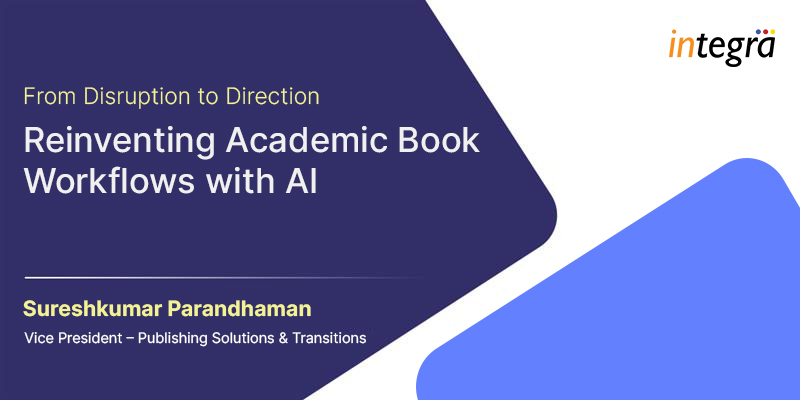Success Stories: How ML Solutions Transformed Businesses Worldwide

In the dynamic and fast-paced world of business, staying ahead of the competition is a constant challenge. The adoption of Machine Learning (ML) by businesses has witnessed unprecedented growth in recent years and is projected to continue to do so in the coming years. The global machine learning market is projected to grow at a CAGR of 36.2% between 2023 and 2030 to reach a value of over $225 billion . ML algorithms, fueled by vast amounts of data and advances in computing power, have unlocked new possibilities across industries. The most popular application of this technology is fostering business growth via the integration of analytics. From retail to healthcare, finance to transportation, businesses are leveraging ML to gain competitive advantages and drive innovation. In this context, ML has emerged as a game-changer, redefining how businesses operate and deliver value to customers.
ML, a powerful subset of Artificial Intelligence (AI), has the power to transform decision-making. By allowing computer systems to learn from disparate data sets and make predictions without explicit programming, ML presents an opportunity for businesses to achieve unprecedented outcomes.
In today’s article, we will explore captivating success stories of ML applications and how they have revolutionized various industries. From predictive analytics and personalized customer experiences to transformative healthcare practices, we will delve into real-world examples that demonstrate ML’s potential to drive businesses into the future.
ML in Predictive Analytics: Case Study 1
Introducing Uber’s Machine Learning for Predictive Analytics
In the competitive landscape of ride-sharing services, Uber has consistently stood out for its commitment to innovation. A significant part of Uber’s success can be attributed to the strategic implementation of ML in predictive analytics.
The ride-hailing giant is a prime example of how ML has revolutionized predictive analytics. By collecting and analyzing vast amounts of ride data, ML helps Uber predict rider demand, optimize routes, and dynamically adjust pricing. This intelligent approach enables the company to reduce wait times, improve operational efficiency, and enhance overall customer satisfaction. This also helps Uber decide the multiplier (1.25x to 3x) for the price surge during high demand.
Empowering Data-Driven Decisions
The value of data-driven decision-making for business is indisputable. ML solutions empower Uber to make informed choices based on huge historical datasets. The algorithms identify intricate patterns and trends that might elude human analysis, leading to better decisions regarding pricing, promotions, and expansion strategies.
Achieving Business Outcomes and Improvements
The combination of ML and predictive analytics has yielded remarkable outcomes for Uber. It has led to optimized driver routes, reduced fuel consumption, and increased driver retention. Using deep learning techniques Uber is able to predict accurate arrival times , which benefits riders with faster pickups and shorter travel times, ultimately enhancing their overall experience with the platform.
ML for Personalization and Customer Experience: Case Study 2
Netflix’s Personalization: The Science Behind the Movie Recommendations
In the fiercely competitive world of streaming services, customer satisfaction and retention are paramount. Netflix, a leading player in the industry, has capitalized on ML to revolutionize personalization and enhance customer experiences.
Netflix employs advanced ML algorithms to analyze user behavior, preferences, and viewing history. This powers the platform to offer personalized movie and TV series recommendations to each subscriber, tailoring the content to individual tastes.
Tailored Recommendations and Customer Loyalty
ML plays a pivotal role in achieving customer loyalty, the primary ingredient for business success. Netflix’s implementation of ML algorithms keeps it ahead in market trends, resulting in the company boasting 8 of the top 10 most popular original series in the US. By providing personalized content recommendations, Netflix keeps its subscribers engaged and invested in the platform, increasing customer retention and platform use.
Impact of ML on Customer Retention and Growth of Content
The success of ML in personalization translates into significantly better customer retention rates. The ability to understand user preferences and offer relevant content keeps subscribers hooked, ensuring they remain loyal to the platform for their entertainment needs.
In 2019, Netflix unveiled an impressive lineup of original content, featuring a staggering 2,769 hours of movies, TV shows, and other exclusive productions. The streaming giant’s dedication to creating original content has experienced a meteoric rise over the past five years, with a remarkable surge in produced assets. With this strategic focus on original content, Netflix has not only strengthened its position in the entertainment industry but has also cemented its reputation as a premier content creator, captivating viewers worldwide with compelling stories and innovative productions.
ML in Healthcare: Case Study 3
IBM Watson for Oncology: Transforming Cancer Care with AI
The impact of ML seamlessly extends itself to the critical realm of healthcare. IBM Watson for Oncology is a prime example of ML-driven transformation in the medical sector.
By analyzing massive amounts of medical data, IBM Watson for Oncology assists oncologists for Oncology assists oncologists in making well-informed treatment decisions. This ML-powered tool suggests personalized treatment plans based on each patient’s unique condition, leading to improved patient outcomes.
Improving Patient Outcomes with ML
In the healthcare industry, where patient well-being is paramount, ML has emerged as a key catalyst for positive change. By leveraging ML’s analytical capabilities, healthcare providers gain access to real-time patient data, identify potential risks, and make better-informed decisions. This not only enhances patient care but also streamlines the treatment process.
Revolutionizing Healthcare Practices
ML’s has paved the way for a new era in medical practices. From early disease detection and personalized treatment plans to drug discovery and optimized patient care, ML is transforming the way healthcare is delivered and experienced.
As organizations continue to embrace ML, we can expect continued breakthrough innovations. The potential of ML to revolutionize industries worldwide is undeniable. By leveraging data-driven insights, businesses can stay ahead of the curve and adapt to the dynamic challenges of the modern world.
The path to success lies in leveraging ML’s capabilities to unlock hidden insights and capitalize on emerging opportunities. By adopting ML as a strategic tool, you can position your business for continuous growth, innovation, and an unparalleled competitive advantage. Contact Integra to learn more about leveraging ML to transform your business.
Recent Blogs

Research Integrity vs. Publication Integrity: Clarifying Responsibility in Scholarly Publishing

From Disruption to Direction: Reinventing Academic Book Workflows with AI


